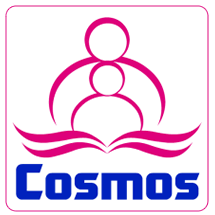POST-2005 TURBULENT JOURNEY TOWARDS DEMOCRACY. THE ERDOĞANISATION OF TURKEY
DOI:
https://doi.org/10.53555/eijhss.v3i4.63Keywords:
Authoritarianism, democratisation, Erdoğanisation, European Union, TurkeyAbstract
Turkey-EU relations have been very unstable over the last decades. Since 2005 the leverage power of the European Union started to reveal signs of stagnation or lack of effectiveness. Simultaneously, Turkey’s democratic performance has tangibly weakened.
This article postulates that Turkey has worsened its democratic performance since 2005 due to an internal dynamic of a growing authoritarianism and the subsequent drifting apart from the EU. In other words, the Erdoğanisation of Turkey hindered its Europeanisation and democratisation processes.
In order to assess the validity of this statement, methods such as literature review, official documents’ analysis and quantitative analysis will be used. It will be privileged a hermeneutical approach that underlines the phenomena’s interpretation through a hypothetical-deductive reasoning strategy.
In terms of structure, this article will be divided as follows: a first section will be devoted to briefly revise Turkey-EU relations, especially considering the breaking point of 2005; the second part will focus on an analysis of the evolution of Turkish democratic performance, including a quantitative approach; and the third section, before the final considerations and reflections, will introduce the concept of Erdoğanisation, attempting to understand its role in the country’s developments over the last decade.
References
. Açikmeşe, Sinem. 2010. ‘Cycles of Europeanization in Turkey: the Domestic Impact of EU Political Conditionality’ in Aydin, Mustafa. (ed.) Turkish Foreign Policy, Old Problems, New Parameters. UNISCI, 185-216.
. Alaranta, Toni. 2015. ‘Turkey under the AKP. A Critical Evaluation from the Perspective of Turkey’s EU Negotiations’. Helsinki: Finnish Institute of International Affairs, FIIA Working Paper 84, February.
. Bechev, Dimitar. 2015. ‘The Travails of Democracy in Turkey’ In Talbot, Valeria (ed.) the Uncertain Path of the ‘New Turkey’. Milan: Istituto per gli Studi di Politica Internazionale, 7-22.
. Buhari, Didem. 2009. ‘Turkey-EU Relations: The Limitations of Europeanisation Studies’. The Turkish Yearbook of International Relations, vol. 40, 91-121.
. Caporaso, James, Cowles, Maria, Risse, Thomas (eds.) 2001. Transforming Europe: Europeanization and Domestic Change. New York: Cornell University Press.
. Cinar, Kursat. 2015. ‘Local determinants of an emerging electoral hegemony: the case of Justice and Development Party (AKP) in Turkey’. Democratization. 1-23.
. Council of the European Union. 2001. ‘Council Decision of 8 March 2001 on the Principles, priorities, intermediate objectives and conditions contained in the Ac- cession Partnership with the Republic of Turkey’, Official Journal of the European Union, 2001/235/EC.
. EESC. 2015. ‘Opinion of the European Economic and Social Committee on ‘Situation and operating conditions of civil society organisations in Turkey’’, Official Journal of the European Union, 2015/C 246/06, July.
. Eralp, Atila. 2009. ‘The role of temporality and interaction in the Turkey-EU rela- tionship’. New Perspectives on Turkey, 40, 149-170.
. European Commission. 2013. Turkey 2013 Progress Report, SWD (2013) 417, Brussels, October.
. European Commission. 2010. Turkey 2009 Progress Report, SEC (2010)1327, Brussels, November.
. European Commission. 2004. ‘Communication from the Commission to the European
. Parliament. Recommendation of the European Commission on Turkey’s progress towards accession’, Brussels, October, COM (2004) 656.
. European Commission. 2003. Turkey 2003 Progress Report, SEC (2003), Brussels.
. Ghosh, Bobby. 2011. ‘Erdogan’s Moment’. Time, November 28. Accessed October 4 2015. http://content.time.com/time/magazine/article/0,9171,2099674,00.html
. Grigoriadis. Ioannis. 2015. ‘The Turkish Presidential Elections of 10 August 2014’, Mediterranean Politics, 20(1), 105-110.
. Interview. 2013. Atila Eralp, University Professor and Academic Researcher/Director, Middle East Technical University / Centre for European Studies, Ankara, May, 2.
. Interview. 2013a. Ilhan Uzgel, University Professor and Academic Researcher, Faculty of Political Science, University of Ankara, Ankara, April, 30.
. Interview. 2013b. Ege Erkoçak, Director of the Directorate for Political Affairs, Ministry for EU Affairs, Ankara, May, 3.
. Interview. 2013c. Savaş Genç, University Professor and Academic Researcher, Fatih Universitesi, Istanbul, April, 26.
. Justice and Development Party. 2014. ‘Political Vision of AK Parti (Justice and Development Party) 2023. Politics, Society and the World’, September 30. Accessed October 4 2015. https://www.akparti.org.tr/english/akparti/2023-political-vision.
. Kaya, Ayhan. 2015. ‘Islamization of Turkey under the AKP Rule: Empowering Family, Faith and Charity’, South European Society and Politics, 20(1), 47-69.
. Mango, Andrew. 2004. The Turks Today. London: John Murray Publishers.
. Matos, André. 2015. EU’s democracy promotion in Turkey. Paris: Nota de Rodapé. Müftüler-Baç, Meltem, Keyman, E. Fuat. 2015. ‘Turkey’s Unconsolidated Democracy: The Nexus between Democratisation and Majoritarianism in Turkey’, Global Turkey in Europe. Policy Brief 19. Stiftung Mercator, Istituto Affari Internazionali, Istanbul Policy Center.
. Oğuzlu, H. 2012. ‘Turkey and the European Union: Europeanization without Membership’, Turkish Studies, 13(2), June, 229-243.
. Özbudun, Ergun; Gençkaya, Ömer. 2009. Democratization and the Politics of Constitution-Making in Turkey. Budapest: Central European University Press.
. Perchoc, Philippe. 2015. ‘Turkey’s political situation before the general election’. European Parliament Research Service,June2015.AccessedJuly14 2015.http://www.europarl.europa.eu/RegData/etudes/ATAG/2015/559487/EPRS_ATA (201 5)559487_EN.pdf
. Radaelli, Claudio. 2000. ‘Whither Europeanization? Concept stretching and sub- stantive change’, European Integration online Papers. Accessed March 30 2010. http://eiop.or.at/ eiop/texte/2000-008a.htm.
. Rumelili, Bahar. 2011. ‘Identity, Foreign Policy, and Socialization in a Post Enlargement Europe’, Journal of European Integration, 33(2), 235-249.
. Secretariat General for EU Affairs. 2001. ‘Turkish National Programme for the adoption of the Acquis’. Ministry of Foreign Affairs, Republic of Turkey. Official Gazette, 24 March 2001, No. 24352.
. Seufert, Günter. 2014. ‘Erdoğan’s ‘New Turkey’ – Restoring the Authoritarian State in the Name of Democracy’, German Institute for International and Security Affairs, SWP Comments, October.
. Steunenberg, Bernard, Petek, Simay, Rüth, Christiane. 2011. ‘Between Reason and Emotion: Popular Discourses on Turkey’s Membership of the EU’, South European Society and Politics, 16(3), 449-468.
. Talbot, Valeria. 2015. ‘Resetting Turkey-EU Relations?’ In Talbot, Valeria (ed.) the Uncertain Path of the ‘New Turkey’. Milan: Istituto per gli Studi di Politica Internazionale, 83-94.
. World Bank (n.d) ‘Country Data Report for Turkey, 1996-2013’, Worldwide Governance Indicators. Accessed August 7 2015. http://info.worldbank.org/ governance/wgi/index.aspx#countryReports
Downloads
Published
Issue
Section
License
Copyright (c) 2016 EPH - International Journal of Humanities and Social Science (ISSN: 2208-2174)

This work is licensed under a Creative Commons Attribution-NonCommercial-NoDerivatives 4.0 International License.







